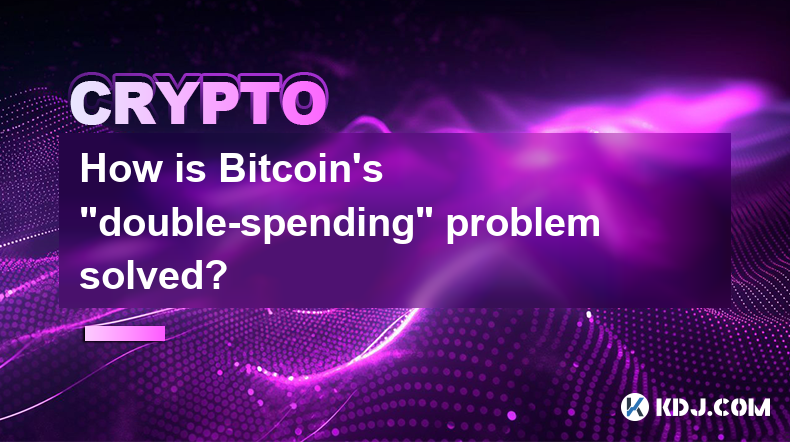-
 Bitcoin
Bitcoin $89,182.0052
-6.92% -
 Ethereum
Ethereum $2,383.9988
-12.46% -
 Tether USDt
Tether USDt $0.9998
-0.03% -
 XRP
XRP $2.1590
-13.34% -
 BNB
BNB $599.1110
-7.04% -
 Solana
Solana $137.2362
-14.82% -
 USDC
USDC $1.0000
-0.01% -
 Dogecoin
Dogecoin $0.2036
-12.67% -
 Cardano
Cardano $0.6601
-11.29% -
 TRON
TRON $0.2312
-6.21% -
 Chainlink
Chainlink $14.4548
-14.24% -
 Stellar
Stellar $0.2848
-11.42% -
 Avalanche
Avalanche $20.8443
-13.00% -
 Sui
Sui $2.7658
-17.04% -
 Toncoin
Toncoin $3.3725
-10.32% -
 Litecoin
Litecoin $110.3500
-11.09% -
 UNUS SED LEO
UNUS SED LEO $8.8086
-9.81% -
 Shiba Inu
Shiba Inu $0.0...01338
-10.65% -
 Hedera
Hedera $0.1843
-9.97% -
 MANTRA
MANTRA $7.8135
-7.77% -
 Polkadot
Polkadot $4.2624
-11.11% -
 Hyperliquid
Hyperliquid $18.4966
-14.37% -
 Ethena USDe
Ethena USDe $1.0000
-0.01% -
 Bitcoin Cash
Bitcoin Cash $282.6524
-10.84% -
 Dai
Dai $0.9998
-0.03% -
 Bitget Token
Bitget Token $4.4366
-10.73% -
 Uniswap
Uniswap $7.6786
-11.56% -
 Monero
Monero $220.0313
-7.05% -
 NEAR Protocol
NEAR Protocol $2.8350
-15.54% -
 Pepe
Pepe $0.0...07597
-16.02%
What is the market prospect of Stader (SD) currency?
Stader empowers users to earn passive income from their PoS assets while retaining liquidity through innovative liquid staking and yield optimization strategies.
Dec 31, 2024 at 05:17 pm

Key Points:
- Stader's Liquid Staking Protocol: Overview and benefits of Stader's liquid staking protocol for ETH and other PoS assets.
- SD Token Economics: Supply, distribution, use cases, and potential value drivers of the SD token.
- Staking and Yield Optimization: Staking mechanism, rewards distribution, and yield optimization strategies using Stader.
- Competitive Landscape: Comparison of Stader to other liquid staking protocols in terms of features, staking APYs, and ecosystem support.
- Market Outlook for SD: Analysis of market trends, demand drivers, and potential price appreciation scenarios for the SD token.
Stader's Liquid Staking Protocol
Stader is a decentralized liquid staking protocol that allows holders of proof-of-stake (PoS) assets, such as Ethereum (ETH), to stake their tokens and earn rewards while maintaining liquidity. Stader's protocol fractionalizes staked assets into a representation token, called stETH in the case of ETH, which can be traded or used in DeFi applications.
Benefits of Stader's liquid staking protocol include:
- Passive Income Generation: Staking PoS assets through Stader allows users to earn rewards without the lock-up period associated with traditional staking.
- Liquidity for Staked Assets: Stader's stETH tokens represent staked ETH and can be traded or used in DeFi applications, providing liquidity for users who want to maintain exposure to ETH while still earning rewards.
- Optimized Yield: Stader's protocol uses yield optimization strategies to maximize rewards for stakers, optimizing returns based on market conditions.
SD Token Economics
The SD token is the native utility token of the Stader ecosystem. Key aspects of the SD token economics include:
- Supply: Maximum supply of 100,000,000 SD tokens, with an initial circulating supply of around 30% at launch.
- Distribution: SD tokens were initially distributed through a public token sale, with allocations for the team, advisors, and ecosystem development.
- Use Cases: SD tokens are used for staking, governance, and voting on protocol parameters, providing holders with a stake in the direction of Stader's development.
- Potential Value Drivers: The value of the SD token is driven by the adoption and growth of Stader's liquid staking protocol, the revenue generated from staking fees, and the level of community participation in governance.
Staking and Yield Optimization
Staking with Stader is a simple process that involves delegating assets to node operators who validate transactions on the underlying PoS network. Users can choose from a variety of node operators with different performance and commission rates.
Stader's yield optimization strategies employ machine learning algorithms to allocate staked assets across different node operators to maximize rewards while mitigating risk. Users can also manually adjust their node operator selections based on their own preferences.
Competitive Landscape
Stader competes with several other liquid staking protocols in the market, including:
- Lido Finance: A leading liquid staking solution with a large market share and a number of supported PoS assets.
- Rocket Pool: A decentralized liquid staking protocol that focuses on community governance and node operator participation.
- Ankr Staking: A multi-chain liquid staking platform that offers a range of staking options for various PoS networks.
- Binance Liquid Staking: A centralized liquid staking solution offered by Binance, one of the largest cryptocurrency exchanges.
Each protocol has its own unique features and advantages, and the best choice for users depends on factors such as staking APYs, security, fees, and user experience.
Market Outlook for SD
The market outlook for the SD token is driven by a combination of factors, including:
- Adoption of Stader's Liquid Staking Protocol: As more users adopt Stader's liquid staking solution, the demand for SD tokens for staking and governance increases.
- Growth of the Staking Market: The growing popularity of PoS blockchains and the increasing number of tokens being staked create a favorable environment for liquid staking solutions.
- Ecosystem Development and Partnerships: Stader's partnerships with other projects in the DeFi ecosystem, such as lending platforms and decentralized exchanges, can increase the utility and demand for SD tokens.
Overall, the market outlook for SD is positive, supported by the increasing adoption of liquid staking, the growth of the staking market, and Stader's strong position within the competitive landscape.
FAQs Related to Stader (SD)
- What is the minimum amount of ETH required to stake through Stader?
Currently, Stader has a minimum staking requirement of 0.01 ETH.
- What are the fees associated with staking on Stader?
Stader charges a 0% network fee and a 0.5% platform fee on the staking rewards earned through its protocol.
- How often are staking rewards distributed on Stader?
Staking rewards are distributed continuously and automatically to stakers. Rewards are calculated and compounded on each new block mined on the underlying PoS network.
- Is it possible to unstake ETH from Stader immediately after staking?
No, unstaking ETH from Stader typically involves a 48-hour unlock period. However, Stader's stETH token allows users to maintain liquidity for their staked ETH by representing it as a liquid ERC-20 token that can be traded or used in DeFi applications.
- What is the current APY for staking ETH on Stader?
The current APY for staking ETH on Stader varies based on market conditions and the performance of Stader's selected node operators. As of the time of writing, the estimated APY is around 4%.
Disclaimer:info@kdj.com
The information provided is not trading advice. kdj.com does not assume any responsibility for any investments made based on the information provided in this article. Cryptocurrencies are highly volatile and it is highly recommended that you invest with caution after thorough research!
If you believe that the content used on this website infringes your copyright, please contact us immediately (info@kdj.com) and we will delete it promptly.
- Changpeng Zhao’s Cryptocurrency Portfolio: 98% Dominated by Binance’s BNB Token
- 2025-02-25 15:00:28
- Ethereum Must Defend Key Price Level to Sustain Hopes for an Altseason, Analyst Warns
- 2025-02-25 15:00:28
- NYSE Arca Takes First Step Toward Listing Spot Cardano (ADA) Exchange-Traded Fund (ETF)
- 2025-02-25 15:00:28
- Nasdaq Files Form to List Canary Capital HBAR Spot ETF, Boosting Altcoin's Institutional Adoption Prospects
- 2025-02-25 15:00:28
- Litecoin Spot ETF: A Potential Game-Changer for LTC
- 2025-02-25 15:00:28
- Strategy Continues to Stack Sats, Buys 20K BTC and Raises $2B in New Convertible Notes Offering
- 2025-02-25 15:00:28
Related knowledge

What are the long-term investment risks of Bitcoin?
Feb 22,2025 at 05:30pm
Key PointsVolatility and price fluctuationsRegulatory uncertaintySecurity risksCompetition from altcoinsMarket manipulation and scamsTransaction feesEnvironmental concernsLong-Term Investment Risks of BitcoinVolatility and Price FluctuationsBitcoin's high volatility is a double-edged sword. While it has the potential to generate substantial returns, it ...

What are the main contents of Bitcoin's "white paper"?
Feb 21,2025 at 04:36am
Key Points:Understanding Bitcoin's Genesis: The White Paper's IntroductionA Decentralized Digital Currency: Bitcoin's Core ConceptBlockchain Technology: The Foundation of Bitcoin's Immutable LedgerProof-of-Work: Securing Bitcoin's NetworkThe Design of Bitcoin's Currency: Issuance, Scarcity, and DivisibilityBitcoin's Potential Applications and Future Pro...

How does Bitcoin's distributed ledger ensure consistency?
Feb 22,2025 at 10:06pm
Key Points:Bitcoin employs a distributed ledger, also known as a blockchain, to maintain a tamper-proof and consistent record of transactions.The blockchain is a decentralized network of computers that collectively validate and store transaction data.Bitcoin's distributed ledger ensures consistency through consensus mechanisms and cryptographic algorith...

What does the Cryptographic Fundamentals of Bitcoin consist of?
Feb 21,2025 at 12:06pm
Key PointsUnderstanding the cryptographic algorithms used in BitcoinFamiliarization with the Bitcoin blockchain and its underlying mechanicsExamination of the security measures that protect Bitcoin from attackAnalysis of the decentralized nature of Bitcoin and its implicationsDiscussion of the scalability and transaction fee issues associated with Bitco...

What is Bitcoin's relationship with blockchain technology?
Feb 22,2025 at 07:00pm
Bitcoin's Intertwined Relationship with Blockchain TechnologyKey Points:Definition of blockchain technology and its decentralized natureBitcoin's utilization of blockchain for secure and immutable transactionsThe role of blockchain in verifying and confirming transactionsEvolution of blockchain technology beyond Bitcoin's cryptocurrency applicationsUnde...

How is Bitcoin's "double-spending" problem solved?
Feb 23,2025 at 02:54am
Key Points:The double-spending problem refers to the potential for a digital currency transaction to be reversed, allowing the same funds to be spent multiple times.Bitcoin solves this problem through the use of a decentralized blockchain, a public ledger that records all transactions permanently and securely.The immutability and transparency of the blo...

What are the long-term investment risks of Bitcoin?
Feb 22,2025 at 05:30pm
Key PointsVolatility and price fluctuationsRegulatory uncertaintySecurity risksCompetition from altcoinsMarket manipulation and scamsTransaction feesEnvironmental concernsLong-Term Investment Risks of BitcoinVolatility and Price FluctuationsBitcoin's high volatility is a double-edged sword. While it has the potential to generate substantial returns, it ...

What are the main contents of Bitcoin's "white paper"?
Feb 21,2025 at 04:36am
Key Points:Understanding Bitcoin's Genesis: The White Paper's IntroductionA Decentralized Digital Currency: Bitcoin's Core ConceptBlockchain Technology: The Foundation of Bitcoin's Immutable LedgerProof-of-Work: Securing Bitcoin's NetworkThe Design of Bitcoin's Currency: Issuance, Scarcity, and DivisibilityBitcoin's Potential Applications and Future Pro...

How does Bitcoin's distributed ledger ensure consistency?
Feb 22,2025 at 10:06pm
Key Points:Bitcoin employs a distributed ledger, also known as a blockchain, to maintain a tamper-proof and consistent record of transactions.The blockchain is a decentralized network of computers that collectively validate and store transaction data.Bitcoin's distributed ledger ensures consistency through consensus mechanisms and cryptographic algorith...

What does the Cryptographic Fundamentals of Bitcoin consist of?
Feb 21,2025 at 12:06pm
Key PointsUnderstanding the cryptographic algorithms used in BitcoinFamiliarization with the Bitcoin blockchain and its underlying mechanicsExamination of the security measures that protect Bitcoin from attackAnalysis of the decentralized nature of Bitcoin and its implicationsDiscussion of the scalability and transaction fee issues associated with Bitco...

What is Bitcoin's relationship with blockchain technology?
Feb 22,2025 at 07:00pm
Bitcoin's Intertwined Relationship with Blockchain TechnologyKey Points:Definition of blockchain technology and its decentralized natureBitcoin's utilization of blockchain for secure and immutable transactionsThe role of blockchain in verifying and confirming transactionsEvolution of blockchain technology beyond Bitcoin's cryptocurrency applicationsUnde...

How is Bitcoin's "double-spending" problem solved?
Feb 23,2025 at 02:54am
Key Points:The double-spending problem refers to the potential for a digital currency transaction to be reversed, allowing the same funds to be spent multiple times.Bitcoin solves this problem through the use of a decentralized blockchain, a public ledger that records all transactions permanently and securely.The immutability and transparency of the blo...
See all articles

















































































